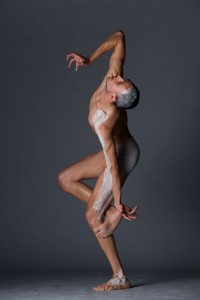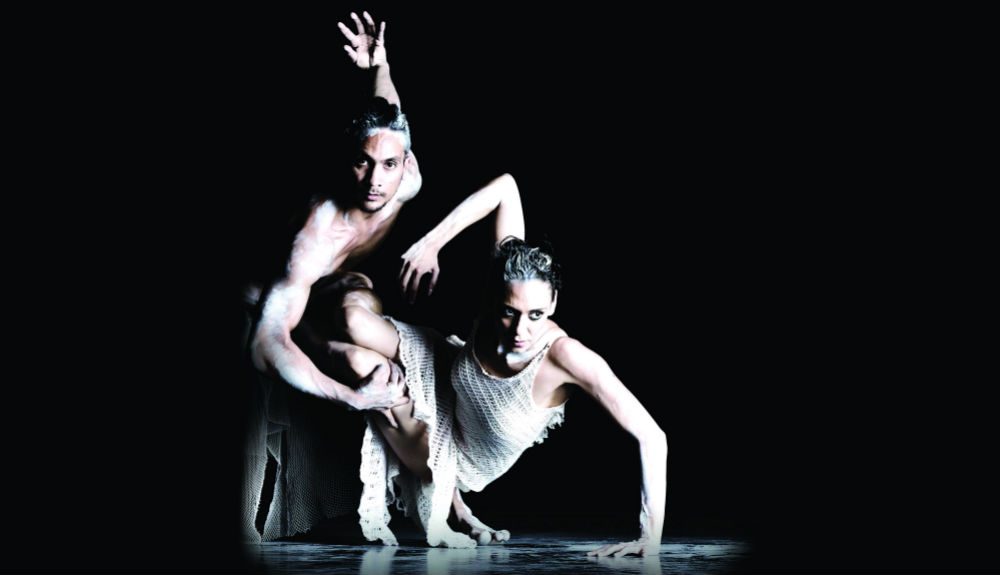by Catherine Blanch.
Bangarra Dance Theatre is a leading Indigenous Australian contemporary dance and performing arts company that celebrates one of the world’s oldest living cultures. Since 1991, Artistic Director Stephen Page has maintained strong relationships with traditional Aboriginal and Torres Strait Island Elders and has mutually shared and honoured many of the stories, songs, dances and customs of the communities for future generations.
Bangarra is presenting their latest work Kinship at the Dunstan Playhouse, so we speak with dancer Kaine Sultan-Babij to find out more.
“Kinship is a double bill,” he begins. “Brolga is a story that we’ve been entrusted with from North East Arnhem Land about a young girl whose totem is the Brolga. Over the course of the work she finds herself going from this human world into the more spiritual realm. It’s her journey of connecting back to her roots, so to speak. We’ve put movement to that story as our way of sharing it.
“The second half is called ID which is purely about identity and how do we, as young Aboriginal people, identify as being Aboriginal in this 21st Century world in Australia. It focuses on some of the issues that we are faced with, addressing some social issues and just putting ourselves out there.”
Is ID based on a traditional story or was it created by the dancers themselves?
“There are some pieces in ID that are drawn from traditional stories,” Kaine says. “There’s one section called The Totem World which, without giving too much away, comes from the totemic and kinship systems that aboriginal people have been living by for centuries. There are parts within that where we break away to more contemporary work; a duo between myself and another dancer which is about brothers within the kinship system of Aboriginal social structure; three women break away as an example of the men perhaps marrying more than one woman. Both are contemporary-traditional pieces.
“We also do a few traditional dances that take audiences on a journey; the Eucalypt dance, and one about the clouds and how they can tell us if it’s going to rain in the next couple of days or if the seasons are changing.”
How many dancers are in the performances?
“There are 14 performers within the cast, all from different backgrounds of performing arts,” he says. “Some of us have done visual arts prior to finding our way into dance and movement. Others have had more circus training or have learned varied styles of dance: ballet, contemporary, musical theatre. We all have a very eclectic performing arts heritage so it’s great that we have come to be performing together. 
“My personal dance background started when I was really young. I can remember putting my stereo out on the asphalt with my cousins during recess and lunch at school and just playing music and dancing; that’s how we could come together as kids. As we got older, even though we went to different high schools, we still thought dancing was fun and kept it going. We’d meet up on weekends to dance, eventually getting some attention from a Youth Centre in Whyalla who got funding to fly in a choreographer from Adelaide. We worked on a number of routines over a few months and would perform them for our families and friends.
“As time went on we met with different teachers who taught us things like hip-hop, but also moved us more into contemporary Indigenous styles, which was something that I wanted to explore more, so once we found those creative pathways, we were able to just keep going with them. I study dance for five years before finding myself with a contract at Bangarra.”
Kaine is of Aboriginal descent as well as Croation and Afghan ancestry. With so many cultural histories among the dancers, does Bangarra allow scope for all traditions to be celebrated through dance?
“The focus is definitely on Aboriginal and Torres Strait Islander ancestry,” Kaine says, “but I often feel we can draw a lot of stories from our other bloodlines that we share and celebrate. There are a lot of similarities between what happened to the First Nation’s people in America and Aboriginal people as well as drawing inspiration, perhaps, from the displacement of our relatives that have had to flee their home countries to create a better lives form themselves here in Australia.”
Bangarra recently performed in the Netherlands.
“Yes, we danced at The Hague during the Holland Dance Festival, which was amazing and we got to share our stories in a different country. It was beautiful, but really cold at the time,” he laughs.“We had left 32 degrees in Darwin and went to minus-10 degrees with wind and snow in Holland, which was a huge contrast. Our time there was amazing and it’s still very fresh in my memory.”
Kaine speaks fondly of the music that the Bangarra dancers perform to.
“David Page [Stephen’s brother] is our resident composer so he wrote the soundtrack to both works. In fact, he has done all of Bangarra’s music. He also likes to collaborate and brings in some amazing vocalists, like Emma Donovan and even one of our dancers, Yolande Brown. He also creates some great melodies and harmonies within the traditional songs as well, all of which creates a more powerful resonating sound that drives us as dancers.”
Do you have a favourite moment within the performance?
“I would have to say performing the traditional steps,” Kaine replies. “It’s a chance to just let go of all the technical training that we do and dance in a way that is not affected by the music and lighting, but is a moment where we can focus in on why I joined the company and why I love doing what we are doing. Having been taught those traditional steps from our Elders and our adopted families from North-East Arnham Land, it strengthens what we do and makes it all feel really good.
“So far, this experience has been an amazing journey in connecting back to my cultural roots, to be able to sit down with mob in the central desert and the coastal regions of the islands, to just breathe and hear what people have to say. Culture is not just what we see and hear on the radio, it’s more than that to be able to experience that in the communities and be entrusted with those stories, it has been really special and humbling to be a part of the company.
“I hope that people who come and see the show can connect with what we are doing and sharing. Adelaide audiences are in for a real treat and a wonderful cultural injection.”
Bangarra Dance Theatre performs Kinship at Dunstan Playhouse, Adelaide Festival Centre, at various times on Thu Oct 22 until Sat Oct 25.
Book at BASS on 131 246 and www.bass.net.au.’
Kaine Sultan-Babij image courtesy of Greg Barrett




